Noah Robinson Grew Up Feeling Suicidal. How a Video Game Saved His Life — and Inspired Him to Help Others (Exclusive)
The entrepreneur — who co-founded the mental health platform Innerworld with singer-songwriter Jewel — opens up to PEOPLE about his incredible journey
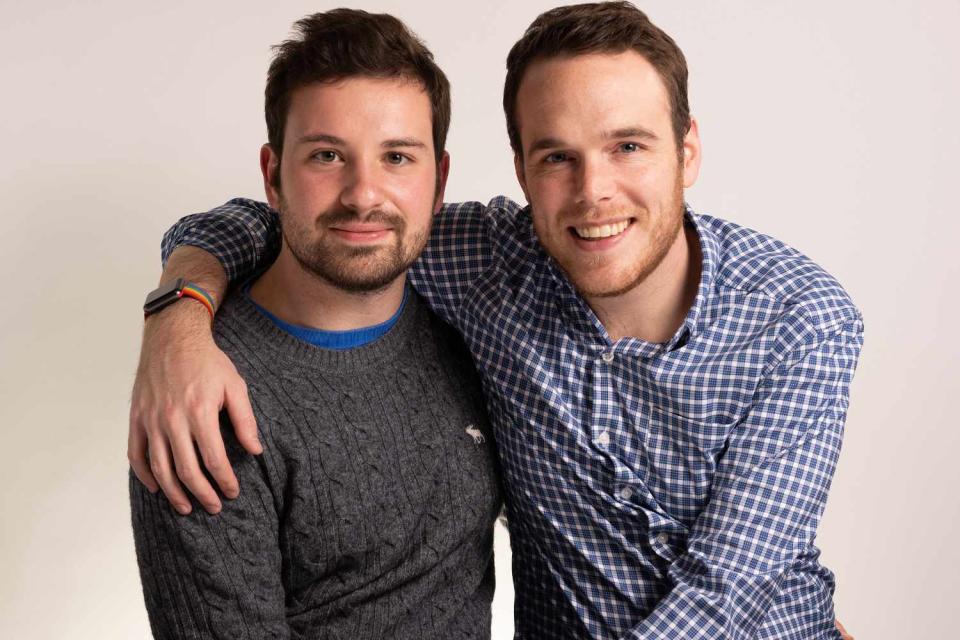
Josh Robinson Studio
Noah Robinson and his husbandWhen Noah Robinson was 13 years old, he was lost in a deep catatonic depression. He was gay and desperately wanted to keep his sexuality hidden.
"I was in so much pain and shame," Robinson, 32, who is mental health platform Innerworld's CEO, exclusively told PEOPLE in Bentonville, Arkansas, after attending singer Jewel's art exhibit, The Portal: An Art Experience by Jewel, at the Crystal Bridges Museum of American Art last month. "I was thinking maybe it would be easier if I just ended my life."
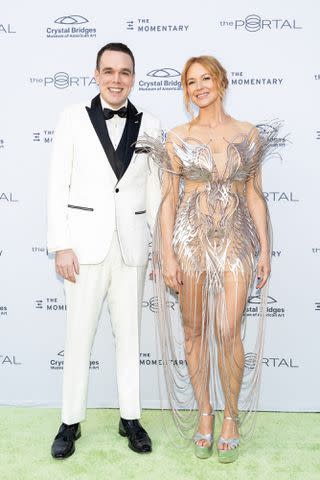
Shane Drummond/BFA
Noah Robinson (left) and Jewel (right) in Bentonville, Arkansas in MayAs an LGBTQ teenager, Robinson says middle school was not an accepting place for him in 2004. At age 14, Robinson already felt suicidal. "There was this deep moment of contemplation when I was like, 'Should I do this?' And I was like, 'I don't know. I think my family would feel really bad about it.'"
At the time, Robinson was living with his family, including three brothers, in Potomac outside Washington, D.C., and felt constantly on edge that someone would find out his "secret."
"That's the really hard thing about being closeted. It's an internal experience first," says Robinson. "If you don't say anything to anyone, nobody knows. Comments really hurt and stuck with me. Just thinking about telling someone was so scary. For many years, I thought it would be impossible for me to tell anyone. I was having this battle inside my head, thinking, 'Is this something I can do? Could I ever love a man?'"
Robinson turned to RuneScape, an online fantasy role-playing game, to escape his pain. He spent 10,000 hours playing under an avatar for years and surrounded himself with other players who supported and accepted him.
"It kept me going and saved my life," Robinson explains. "I didn't have to think about my sexuality. It wasn't a factor in the game, so I was able to build an identity and explore it. Eventually, I talked to others about what I was going through in there. They helped me. It was very powerful. The entire community was so supportive. It literally kept me alive."
Robinson's queerness had become such a battle with himself that all he wanted was peace. On Thanksgiving in 2008, at age 17, he decided to come out to his family. He envisioned a world where he could get married and have doors open for him, but the first step was being accepted by his loved ones.
"I finally had the courage to tell them I was gay," he says. "For many people who come out, it's the fear of rejection and overcoming that risk. My parents could have disowned me. And I think that's why the suicide rate for LGBTQ youth is so high," he adds. "But I was fortunate. They all loved and accepted me."

Jewel and Noah Robinson
Innerworld app cofounded by Jewel and Noah Robinson.His experience led him to wonder if he could help others struggling with mental health issues through technology. After graduating from the University of Maryland, Robinson spent a year as a fellow at the National Institutes of Health (NIH).
There, he tried virtual reality for the first time and devised the idea for Innerworld, which offers peer-led and professional mental health support through its app.
The idea got him accepted to Vanderbilt University's PhD program in clinical psychology — where he will graduate from next year — and brings the principles of cognitive behavioral therapy, or CBT, into the metaverse. It enables users to interact with others as anonymous avatars through voice- and text-based chat 24 hours a day.
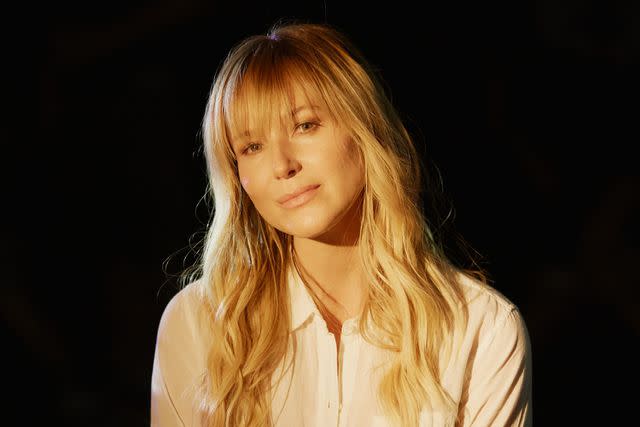
Dana Trippe
Jewel in 2024The platform became available to the public in 2022 and has helped over 100,000 people receive mental health support. In August of that year, he also met four-time Grammy-nominated singer-songwriter Jewel, now 50, who runs the nonprofit Inspiring Children Foundation, dedicated to transforming the lives of at-risk youth through a whole human approach to physical, emotional and mental health.
"Jewel reached out to me when she saw Innerworld still in early beta testing online," Robinson says. "After talking, experiencing her foundation and meeting each other in person, I knew we had to work together. We had such a high level of overlap in our approach. Our energy felt so powerful and synergistic. She is incredible."
Related: Jewel Has Finally Found True Love. And You'll Be Surprised Who It Is (Exclusive)
Jewel told PEOPLE in May that experiencing childhood trauma also made her want to help others.
"I think when you suffer yourself, and you find things that work, you want to help other people find those solutions. Working with Innerworld was definitely inspired by my own journey, but also, when you know what it's like to suffer, you want to help solve that problem for others," she said. "It feels like a sacred obligation."
As she entered adulthood, "I think the thing that was really hard for me was not having and knowing I wasn't going to get access to therapy or counselors. The relationship with my family wasn't the best to have a supportive network. And there's too many others like that that don't have access to help," said Jewel. "It was my mission to find solutions that worked, were affordable, scalable and free. It just wasn't acceptable to me that happiness could be elite."
The mental health platform starts free while capping out at $120 a month. Each tier provides users with different levels of support — the highest tier giving users access to licensed therapists. For extra features such as unlimited group sessions, costs start at $10 weekly. Affordability and accessibility were both crucial to the singer and Robinson.
"Right now, we're 500,000 therapists short in America, and we think that if everybody were to seek care, we would be five million therapists short. I looked at our education system and saw how many kids are in school for therapy and how many enroll every year. Our need has outpaced our ability to meet it in the traditional system," says Jewel. "I wanted to create a solution that could deliver positive and real outcomes but in an untraditional way."
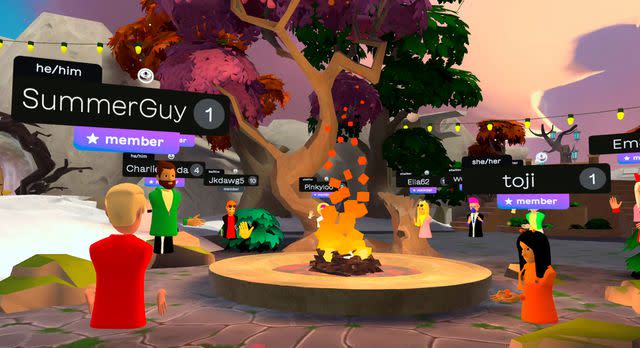
Jewel and Noah Robinson
Innerworld app cofounded by Jewel and Noah RobinsonAfter speaking at a seminar in Arkansas on May 4, Robinson explained that offering mental health tools in a safe space like he had growing up could help millions of people.
Upon entering Innerworld, users can choose from a variety of settings that emulate environments like a campfire or even go beachside. From there, a person can engage with other avatars or browse a list of events, such as guide-led veteran or addiction support groups or workshops on navigating anxiety, depression, grief and loss.

Jewel and Noah Robinson
Jewel and Noah Robinson's Innerworld appUltimately, Innerworld allows users to support one another — but Robinson emphasizes that the service should not replace professional treatment and that the app is not therapy. In the coming months, he will launch Innerworld for teens ages 13-17, and the platform is currently exploring doing the same for adults with intellectual disabilities.
One of the primary goals is to integrate Innerworld into a stepped-care model so that individuals who need a higher level of care, like a psychiatrist or in-patient hospitalization, can get proper resources and bring their data with them from the app.
"One way to look at suicide is that it is a permanent solution to a temporary problem," says Robinson. "Suicide is a behavior that someone engages in to eliminate their pain. Ultimately, it's self-regulation, but other things could help them, like interventions, so it's not a permanent end state. And so, for me, I was in so much pain. I had so much anxiety at school, wasn't doing well in my classes and I eventually had this addiction to a video game, so I was escaping," he continues. "I thought ending things was so much easier, but I'm so glad that didn't happen."
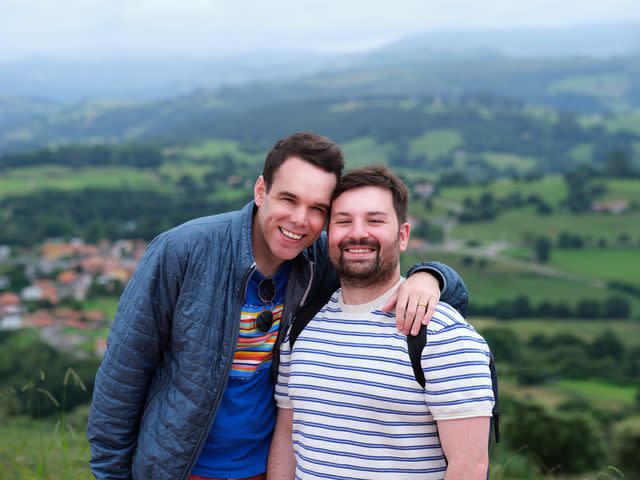
Josh Robinson Studio
Noah Robinson and his husbandWith a soft smile, Robinson shares that he finally found love and married Alejandro Llorente-Esteban, 29, in July 2023 at a palace in Italy after meeting him in August 2019 at graduate school.
"My mom stood by me as I wed the love of my life. It was amazing," says Robinson of his mom and husband, a PhD candidate in biophysics and molecular psychology at Vanderbilt. "She referenced my suicide in the song that she wrote. It was beautiful. Everyone was crying. She said my life was a life worth living."
Now, the couple are searching for a surrogate to have their first child together. "If I had taken my own life, I wouldn't have been in pain, but I would've never been able to experience a wedding or have this beautiful life now," says Robinson, holding back tears. "My mentor says it best: 'Don't believe everything you think.' It's like every thought feels so real when you are so depressed. People get trapped in their own issues. But not all our thoughts are accurate."
"So there is hope, and there is a path, and my goal is to make a difference in the mental health crisis and help those suffering," he says. "It's what drives me and Jewel because we both had a difficult adolescent experience. So both of us know that it can be better."
For more People news, make sure to sign up for our newsletter!
Read the original article on People.


